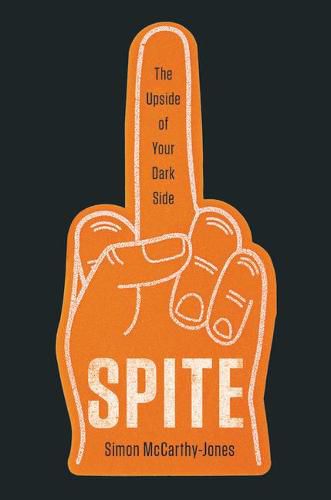Readings Newsletter
Become a Readings Member to make your shopping experience even easier.
Sign in or sign up for free!
You’re not far away from qualifying for FREE standard shipping within Australia
You’ve qualified for FREE standard shipping within Australia
The cart is loading…






Spite angers and enrages us, but it also keeps us honest. In this provocative account, a psychologist examines how petty vengeance explains human thriving. Spite seems utterly useless. You don’t gain anything by hurting yourself just so you can hurt someone else. So why hasn’t evolution weeded out all the spiteful people?
As psychologist Simon McCarthy-Jones argues, spite seems pointless because we’re looking at it wrong. Spite isn’t just what we feel when a car cuts us off or when a partner cheats. It’s what we feel when we want to punish a bad act simply because it was bad. Spite is our fairness instinct, an innate resistance to exploitation, and it is one of the building blocks of human civilization. As McCarthy-Jones explains, some of history’s most important developments–the rise of religions, governments, and even moral codes–were actually redirections of spiteful impulses.
A provocative, engaging read, Spite shows that if you really want to understand what makes us human, you can’t just look at noble ideas like altruism and cooperation. You need to understand our darker impulses as well.
$9.00 standard shipping within Australia
FREE standard shipping within Australia for orders over $100.00
Express & International shipping calculated at checkout
Spite angers and enrages us, but it also keeps us honest. In this provocative account, a psychologist examines how petty vengeance explains human thriving. Spite seems utterly useless. You don’t gain anything by hurting yourself just so you can hurt someone else. So why hasn’t evolution weeded out all the spiteful people?
As psychologist Simon McCarthy-Jones argues, spite seems pointless because we’re looking at it wrong. Spite isn’t just what we feel when a car cuts us off or when a partner cheats. It’s what we feel when we want to punish a bad act simply because it was bad. Spite is our fairness instinct, an innate resistance to exploitation, and it is one of the building blocks of human civilization. As McCarthy-Jones explains, some of history’s most important developments–the rise of religions, governments, and even moral codes–were actually redirections of spiteful impulses.
A provocative, engaging read, Spite shows that if you really want to understand what makes us human, you can’t just look at noble ideas like altruism and cooperation. You need to understand our darker impulses as well.